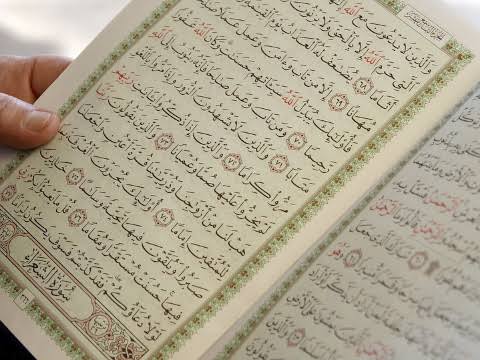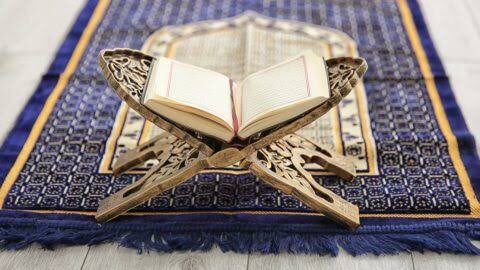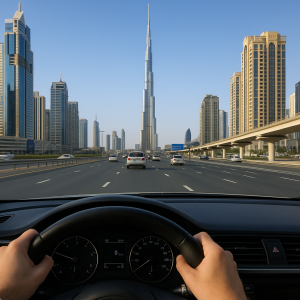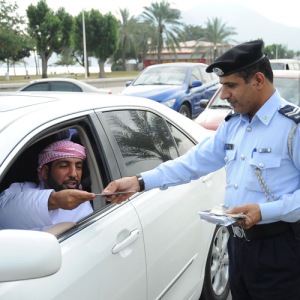Dubai continues to thrive with its modern infrastructure, luxury lifestyle, and cultural diversity, the rhythm of daily life is still deeply influenced by a centuries-old tradition: the practice of Salah, or daily prayers. For Muslims in Dubai, the prayer times are not just moments of religious obligation, but also a reflection of spiritual devotion, connecting them with their faith and with Allah in the midst of the city’s fast-paced environment.
The Significance of Salah in Islam

Salah is one of the Five Pillars of Islam, making it one of the most essential practices in a Muslim’s life. The Five Pillars form the core framework of a Muslim’s religious duties, and Salah is at the heart of this framework. It involves performing specific prayers at designated times throughout the day, each prayer designed to reinforce a different aspect of spiritual connection and mindfulness. It is not just a physical act but a profound expression of faith, intended to keep believers centered and focused on their relationship with Allah.

The five daily prayers include:
- Fajr: The first prayer of the day, performed before dawn. This prayer marks the beginning of the day and sets the tone for the hours ahead.
- Dhuhr: The midday prayer, performed after the sun reaches its zenith. This prayer provides a pause during the day to seek guidance and reflect.
- Asr: The afternoon prayer, held later in the day, serves as a moment to realign with spiritual purpose before evening approaches.
- Maghrib: Performed just after sunset, this prayer signifies the end of the day and a time to give thanks for the blessings received.
- Isha: The final prayer of the day, observed after nightfall, providing a moment of peaceful contemplation before resting.
Prayer Times in Dubai: A Glimpse Into the Spiritual Calendar
In a city as dynamic and forward-thinking as Dubai, where skyscrapers tower over shopping malls and cutting-edge technology drives daily life, the calls to prayer remain an integral and calming presence. The timing of Salah in Dubai is dictated by the position of the sun and is therefore subject to slight variations depending on the season and geographic location. This connection between prayer times and the natural world fosters a sense of balance and harmony, reinforcing the idea that spiritual practice is deeply intertwined with the passage of time and nature’s rhythms.

For residents and visitors in Dubai, knowing the precise times for Salah can make it easier to integrate these moments of reflection and devotion into their daily routines. On December 28, 2024, the prayer times in Dubai are as follows:
- Fajr: 05:40 AM
- Sunrise: 07:03 AM
- Dhuhr: 12:21 PM
- Asr: 03:19 PM
- Maghrib: 05:38 PM
- Isha: 07:08 PM
These prayer times are calculated based on established methods of timekeeping, but individuals may notice slight differences depending on local variations. Therefore, many Muslims in Dubai rely on mobile apps, mosque announcements, or local Islamic authorities to receive the most accurate and up-to-date prayer times.
The Spiritual Connection to Dubai’s Prayer Schedule
For Muslims in Dubai, Salah is more than just an act of worship – it’s a reminder of Allah’s omnipresence and the importance of maintaining a spiritual connection throughout the day. In a city where work, leisure, and travel are often fast-paced, the practice of Salah offers Muslims a structured opportunity to pause and reconnect with their inner selves and their faith.
Each prayer is a reminder of the transient nature of life, encouraging individuals to pause their activities and refocus their attention on higher, spiritual goals. The physical act of bowing, prostrating, and reciting prayers not only strengthens one’s connection to Allah but also serves as a humbling reminder of the larger universe and the importance of maintaining a sense of balance in life.
The unity of prayer times across Dubai’s Muslim population also contributes to a sense of community, as each individual, regardless of their profession, socioeconomic status, or background, aligns their day with the same rhythm of prayer. The Adhan, the call to prayer, can be heard throughout the city, often coming from mosques in neighborhoods, shopping centers, and other public spaces. This auditory cue serves as a unifying force, calling individuals to pause whatever they are doing and take a moment to worship.
The Role of Mosques in Dubai
Dubai is home to some of the most beautiful and grand mosques in the region. These mosques serve not only as places of prayer but also as community centers, providing spiritual guidance, education, and a space for people to gather in fellowship. For many residents and visitors, the mosque is a place where they can feel spiritually nourished and connected to the larger Muslim community.
Some of the most famous mosques in Dubai include:
- Jumeirah Mosque: Known for its striking white stone exterior and stunning architecture, Jumeirah Mosque is one of the few mosques in the UAE open to non-Muslim visitors. It offers an opportunity for people of all backgrounds to learn about Islam and engage in cross-cultural dialogue.
- Al Farooq Omar Bin Al Khattab Mosque: This mosque is an architectural marvel, designed to resemble the famous Blue Mosque of Istanbul. It is a vibrant center of worship, learning, and community outreach.
- Grand Mosque: Located in the historic Al Fahidi district, the Grand Mosque stands as a symbol of Dubai’s rich Islamic heritage. With its towering minaret and intricate details, it is a beautiful reminder of the city’s history and devotion to faith.
These mosques and others around the city ensure that Muslims in Dubai have access to facilities for prayer and spiritual engagement, contributing to the overall sense of community.
Integrating Prayer Times into Daily Life
While prayer is essential, balancing religious obligations with the demands of modern life can sometimes be challenging. In Dubai, however, the integration of prayer times into the daily routine is facilitated by technology and community support.
Many people use smartphone apps to stay informed about prayer times and receive notifications before each Salah. These apps often allow users to adjust settings based on their exact location, providing highly accurate timings.
Additionally, public spaces like malls, hotels, and offices often have prayer rooms available for Muslims who may be away from home during prayer times. Many of these spaces are equipped with prayer mats, qibla direction indicators, and other amenities to ensure that Muslims can observe their prayers in comfort and privacy, regardless of their location.
Tips for Observing Prayer Times in Dubai
For those visiting or living in Dubai, there are a few tips to help make the most of the prayer times:
- Plan Ahead: Try to plan your day around the prayer times. Knowing when the prayers occur allows you to organize your activities without the need to rush through Salah.
- Use Technology: As mentioned earlier, prayer time apps can be invaluable. These apps not only alert you when it’s time to pray but also provide the exact direction to face the Qibla, ensuring that your prayer is conducted properly.
- Engage with the Community: Dubai’s mosques and prayer spaces offer opportunities for communal worship. Taking part in these collective moments of devotion can help strengthen a sense of connection to both your faith and the wider Muslim community in the city.
Conclusion
In Dubai, the practice of Salah remains a vital aspect of daily life, providing spiritual nourishment and a connection to faith amidst the city’s modern landscape. Despite the fast-paced environment, the rhythm of the five daily prayers offers Muslims in Dubai a chance to reconnect with themselves, their faith, and their community. By observing these prayer times, individuals not only fulfill a religious duty but also create a sense of harmony in their busy lives.
For those living in or visiting Dubai, respecting and embracing the prayer times is a powerful way to engage with the city’s deep-rooted spiritual heritage while navigating the demands of modern life. Whether through technology, community support, or personal reflection, the practice of Salah in Dubai offers a unique and fulfilling experience for Muslims in this vibrant and diverse city.
Do Follow Uae stories Follow for more update












